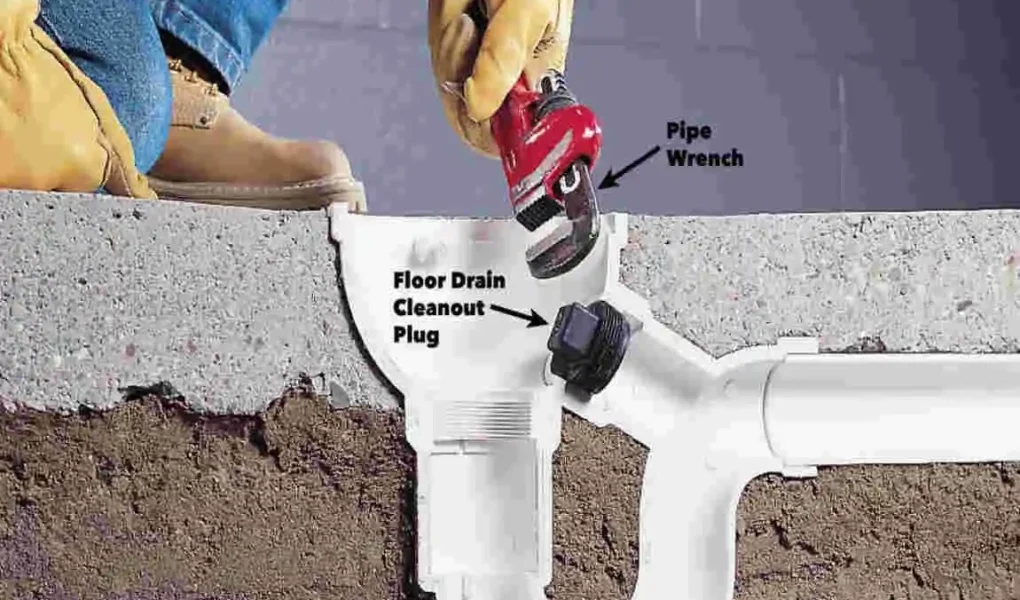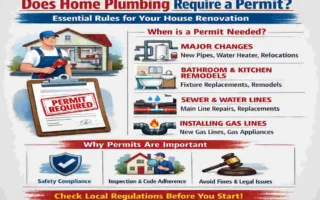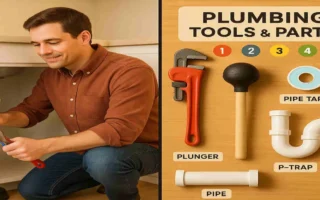Cleaning house plumbing pipes quickly and safely is essential for maintaining a healthy home water system and preventing costly repairs. Effective methods include natural solutions like baking soda and vinegar that fizz and break down buildup, physical tools such as plungers and drain snakes to dislodge clogs, and enzyme-based cleaners that safely digest organic debris without harming pipes. Additionally, preventive habits such as regularly flushing pipes with hot water and avoiding grease or food waste down the drain help keep pipes clear and extend their lifespan. These approaches combine efficiency with safety, making house pipe maintenance accessible for any homeowner.
Understanding House Plumbing Pipes
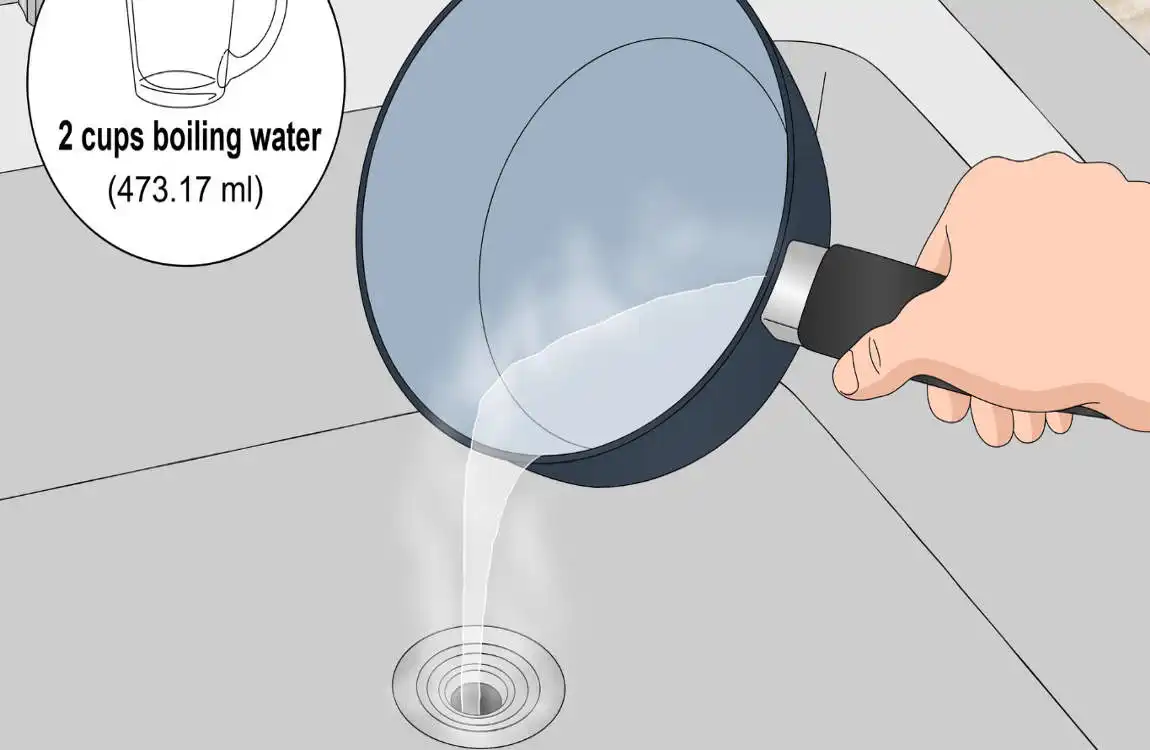
Before diving into cleaning techniques, let’s get familiar with what we’re working with. Your home likely contains a mix of different pipe materials, each with its own characteristics and cleaning requirements.
PVC pipes are the white plastic pipes you’ll find in most modern homes. They’re lightweight, affordable, and resistant to corrosion. These pipes handle most household chemicals well, making them relatively easy to clean. However, they can’t withstand extremely hot water, so you’ll need to be mindful when using heat-based cleaning methods.
Copper pipes have been a plumbing staple for decades. You’ll recognize them by their distinctive reddish-brown color. While incredibly durable and naturally antimicrobial, copper pipes can develop a greenish patina over time. They’re sensitive to acidic cleaners, which means you’ll need to choose your cleaning products carefully.
Galvanized steel pipes are found mainly in older homes built before the 1960s. These pipes have a zinc coating that prevents rust, but over time, this coating can wear away. Once that happens, these pipes become prone to corrosion and mineral buildup, making them particularly challenging to maintain and repair.
Safety Precautions Before Cleaning Pipes
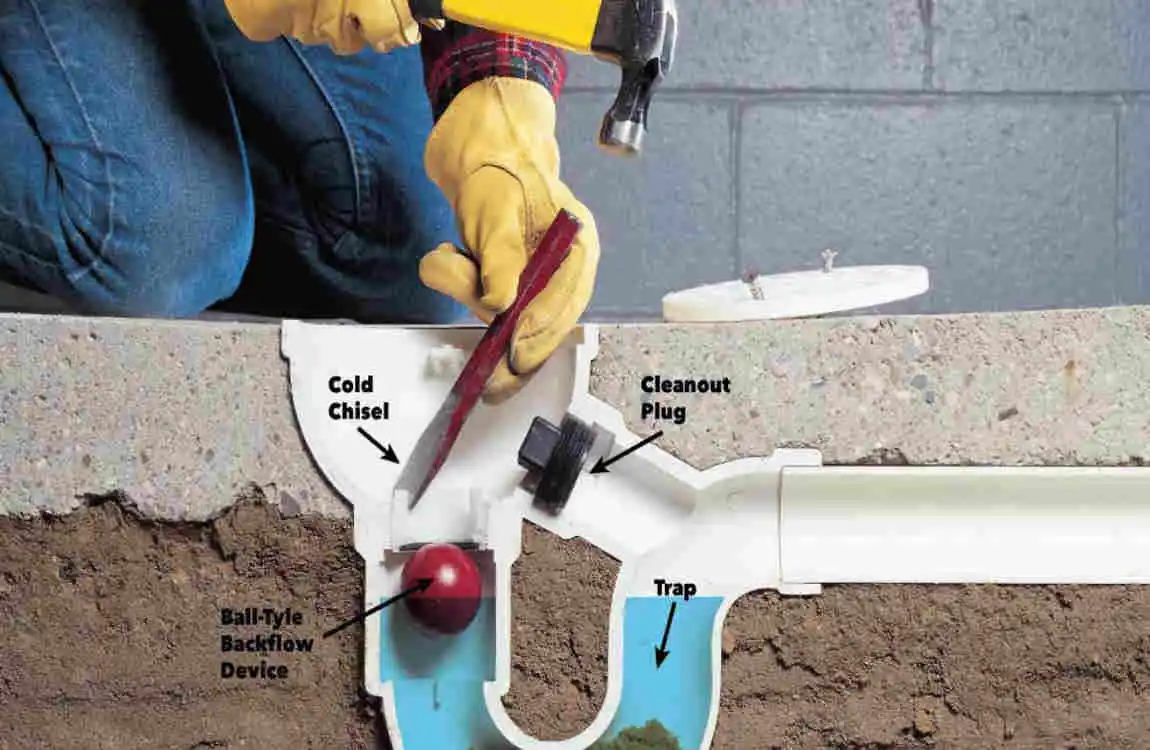
Your safety is our top priority when tackling any plumbing project. Taking proper precautions protects both you and your plumbing system from damage.
Always wear protective gear before starting any pipe cleaning task. Thick rubber gloves shield your hands from harsh chemicals and bacteria-laden water. Safety goggles prevent splashes from reaching your eyes – especially important when using chemical cleaners or when debris might fly back from a clogged drain.
Before beginning work, locate your main water shutoff valve. Turning off the water supply might be necessary for specific cleaning methods or if you’re dealing with severely backed-up pipes. Know where this valve is before an emergency strikes – it’s usually near the water meter or where the main water line enters your home.
Whenever possible, choose non-toxic cleaning methods first. Natural solutions, such as baking soda and vinegar, are safer for your family, pets, and pipes. They’re also better for the environment and won’t damage your septic system if you have one. Reserve harsh chemicals as a last resort for stubborn clogs that won’t budge with gentler methods.
Here’s a critical safety rule: never mix different cleaning chemicals. Combining bleach with ammonia or acid-based cleaners creates toxic gases that can cause severe respiratory damage or even death. If you’ve tried one chemical cleaner without success, thoroughly flush the pipes with water before attempting a different product.
Sometimes, the most brilliant move is admitting when you’re out of your depth. Call a professional plumber if you encounter standing sewage, multiple drains backing up simultaneously, or if you suspect damaged pipes. These situations require specialized equipment and expertise that go beyond typical DIY capabilities.
Effective DIY Methods: How to Clean Out House Plumbing Pipes
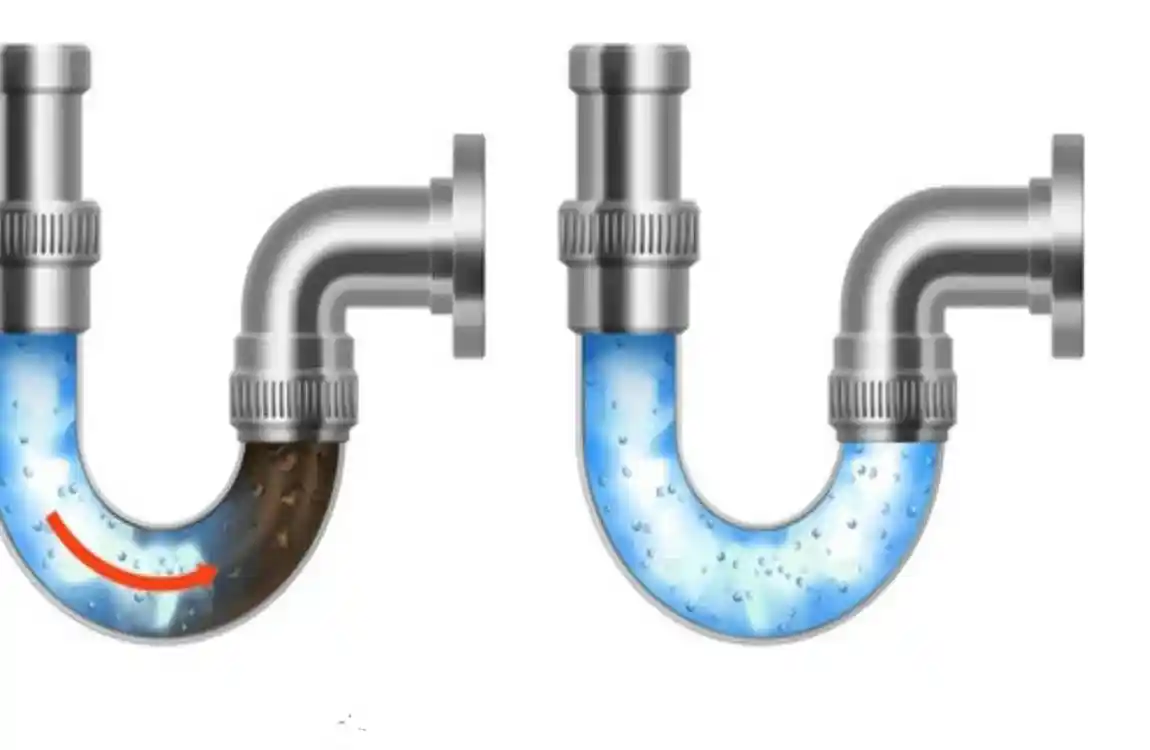
Mechanical Cleaning Techniques
Let’s start with the hands-on approaches that physically remove blockages from your pipes. These methods work well for most common clogs and don’t require any chemicals.
The trusty plunger remains one of the most effective tools in your pipe cleaning arsenal. Here’s how to use it properly: First, ensure there’s enough water in the sink or tub to cover the plunger head – this creates the seal needed for effective plunging. Position the plunger directly over the drain, ensuring complete coverage of the drain opening. Push down slowly to remove air, then pull up sharply. Repeat this motion vigorously for about 20 seconds. The alternating pressure and suction often effectively dislodge clogs.
For toilet plunging, use a flange plunger specifically designed for toilets. The extended rubber flap creates a better seal in the toilet’s curved drain. Remember to dip with controlled force – too much enthusiasm might splash contaminated water everywhere.
When plunging fails, it’s time to bring in the drain snake (also called an auger). This flexible metal cable reaches deep into pipes to break up or retrieve clogs. Feed the snake into the drain while turning the handle clockwise. When you feel resistance, you’ve hit the clog. Continue turning while applying gentle pressure to break through the blockage. Once through, slowly retract the snake while continuing to turn it – this helps grab any debris on the way out.
For bathroom sinks and tubs, consider manual trap cleaning. The U-shaped pipe under your sink (called the P-trap) often collects debris. Place a bucket underneath to catch water, then unscrew the trap carefully. Clean out any visible debris, inspect the rubber gaskets for wear, and reassemble everything securely. This direct approach often solves persistent sink clogs immediately.
Homemade Natural Cleaning Solutions
Nature provides some surprisingly effective alternatives to traditional pipe cleaners that won’t harm your plumbing or the environment. These solutions are most effective for regular maintenance and minor clogs.
The baking soda and vinegar method is a classic for good reason. Start by pouring one cup of baking soda down the drain. Follow immediately with two cups of white vinegar. You’ll see and hear fizzing – that’s the chemical reaction breaking down organic matter. Cover the drain with a plug or a wet cloth to keep the reaction focused in the pipes. Wait 30 minutes, then flush with hot water. This combination dissolves soap scum, loosens minor clogs, and naturally deodorizes pipes.
Hot water flushing sounds simple because it is – yet many people underestimate its effectiveness. Boil a large pot of water (about a gallon) and pour it slowly down the drain. The heat melts grease and soap buildup while the water pressure pushes debris through. Repeat this process weekly for kitchen sinks that see heavy use. Just remember: never use boiling water on PVC pipes or if you have a porcelain sink – the extreme temperature can cause damage.
For a more abrasive natural cleaner, try the lemon juice and salt scrub. Mix 1/2 cup of coarse salt with the juice of 2 lemons. Pour this mixture down the drain and let it sit for an hour. The citric acid breaks down the buildup, while the salt provides gentle abrasion. This method works particularly well for garbage disposals – the salt scrubs the blades while the lemon eliminates odors.
Commercial Pipe Cleaners: Pros and Cons
Sometimes, natural methods aren’t enough, and you need to consider commercial cleaners. Understanding your options helps you make informed choices.
Enzymatic cleaners utilize beneficial bacteria and enzymes to break down organic matter. They’re safer than chemical alternatives and won’t damage pipes. These cleaners work slowly – often requiring overnight treatment – but they’re excellent for maintenance and preventing future clogs. They’re also septic-safe and environmentally friendly. The downside? They won’t work on non-organic blockages, such as mineral deposits or foreign objects.
Caustic cleaners contain lye or potash, creating heat to melt through Grease and organic matter. They’re effective on tough clogs but can damage older pipes and are dangerous to handle. Always use these in well-ventilated areas and never in completely blocked drains – the chemicals need a place to escape.
Acid-based cleaners use sulfuric or hydrochloric acid to dissolve blockages. They’re incredibly powerful but also the most dangerous option. These should be your absolute last resort before calling a plumber. They can damage pipes, destroy beneficial bacteria in septic systems, and cause severe burns if mishandled.
Cleaner Type Best For Pros Cons
Enzymatic Organic matter, maintenance, Safe, eco-friendly, Slow-acting
Caustic Grease, hair , Fast-acting, can damage pipes
Acid-based Severe clogs Very powerful Dangerous, pipe damage risk
Preventive Pipe Maintenance Tips
Prevention truly is the best medicine when it comes to pipe health. Establishing good habits now saves you from major headaches later.
Establish a regular cleaning schedule that suits your household’s needs. High-use drains, such as kitchen sinks, benefit from weekly hot water flushes and monthly treatments with baking soda. Bathroom drains may only require monthly attention unless you have long-haired family members, in which case weekly maintenance becomes crucial.
Install drain strainers and filters in all sinks and tubs. These inexpensive devices catch hair, food particles, and other debris before they enter your pipes Clean them regularly – a strainer full of gunk can’t do its job effectively. For washing machines, consider adding a lint trap to the discharge hose to catch fabric fibers that can accumulate in pipes.
Break bad habits that stress your plumbing system. Stop using the toilet as a trash can – only flush toilet paper and human waste. Even “flushable” wipes don’t break down properly, causing major blockages. In the kitchen, wipe greasy pans with paper towels before washing. Collect coffee grounds for composting instead of rinsing them down the drain.
Advanced Cleaning Techniques
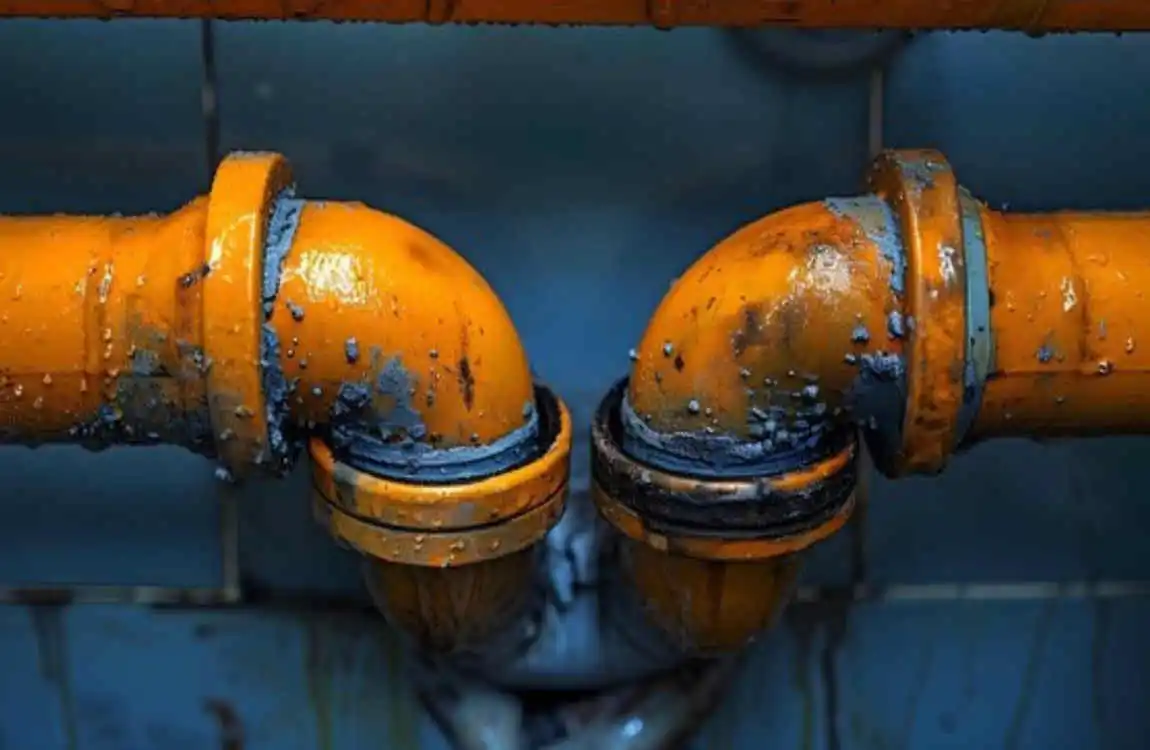
When standard methods fail, these professional-grade techniques might be necessary. While some require professional equipment, understanding them helps you make informed decisions about your plumbing care.
Hydro-jetting is like power washing for your pipes. This technique uses high-pressure water streams (up to 4,000 PSI) to blast away years of buildup, leaving pipes nearly as clean as when they were installed. Professional plumbers utilize specialized equipment that can adjust pressure according to the pipe material and condition. While you can rent smaller hydro-jetting machines, this method requires expertise to avoid pipe damage. Expect to pay $300-$600 for professional hydro-jetting, but the results often last for years.
Camera inspections have revolutionized pipe diagnostics. Plumbers insert a waterproof camera, attached to a flexible cable, into your pipes, providing real-time video of the pipe’s interior. This technology identifies exact blockage locations, pipe damage, root intrusions, and patterns of buildup. You’ll see exactly what’s happening inside your pipes, eliminating guesswork. Many plumbers offer video recordings, which help you better understand your plumbing system and make informed decisions about maintenance.
Enzyme treatments offer a biological approach to pipe maintenance. Unlike one-time enzymatic cleaners, ongoing enzyme treatments involve regularly adding beneficial bacteria to your plumbing system. These microorganisms continuously digest organic waste, preventing buildup naturally. Monthly treatments cost about $10-20 but can significantly extend the time between deep cleanings. They’re particularly effective for homes with septic systems, as they enhance the natural bacterial action already occurring.
Common Mistakes to Avoid When Cleaning Plumbing Pipes
Learning from others’ mistakes saves you time, money, and potential disaster. Here are the most common errors homeowners make when cleaning pipes.
Overusing harsh chemicals tops the list of plumbing mistakes. While it’s tempting to pour bottle after bottle of drain cleaner down stubborn clogs, this approach often backfires. Excessive chemicals can corrode pipes, particularly older metal ones, resulting in leaks and costly repairs. They also kill beneficial bacteria in septic systems and harm the environment.
Ignoring early warning signs is another costly mistake. That slow-draining sink might seem like a minor annoyance, but it’s your pipe’s cry for help. Address minor problems promptly before they escalate into major blockages. A five-minute fix today prevents a flooding emergency tomorrow.
Many homeowners attempt to clean pipes without proper tools, using whatever’s handy instead. Coat hangers might seem like adequate substitutes for snakes, but they can scratch the interiors of pipes or get stuck, creating bigger problems. Invest in basic plumbing tools – they’re relatively inexpensive and last for years.

